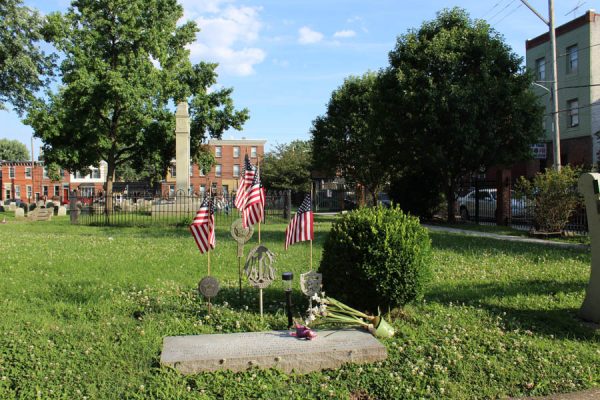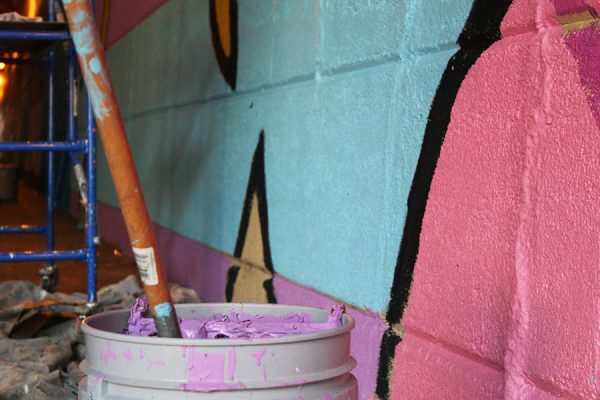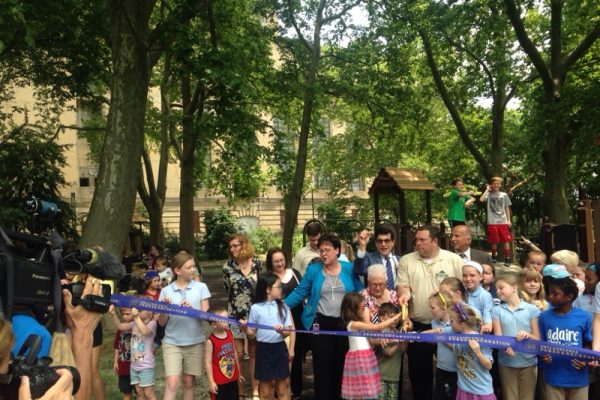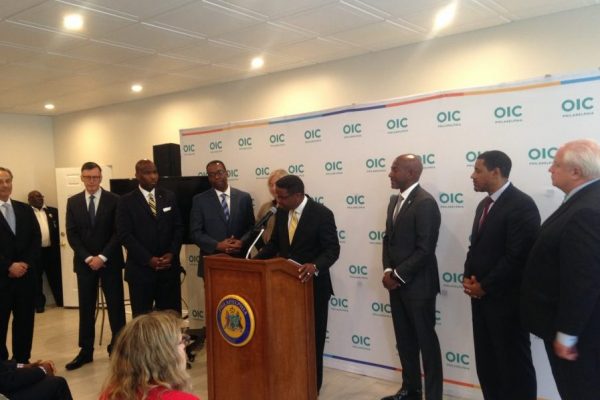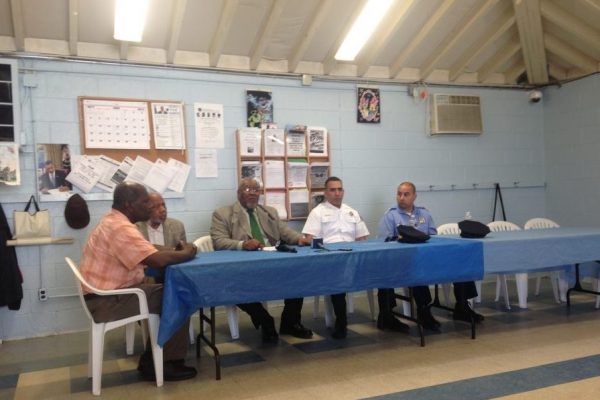Joe Hohenstein Q&A: A New Candidate is Stepping Up to Challenge for the the 177th Legislative District
Joe Hohenstein is a neighborhood guy. He went to Masterman and graduated from Frankford High in 1985. He’s lived in Frankford for 40 years, has raised a family and is an immigration lawyer in Philadelphia.
“I come at it from being a lifelong Philly resident and wanting to have representation that I think reflects the values and the working class nature of the people who live here,” Hohenstein told Spirit News.
He was an athlete in his youth and credits sports for giving him the chance to see different parts of the area. “The sports took me to a lot of different places in the district,” Hohenstein explained.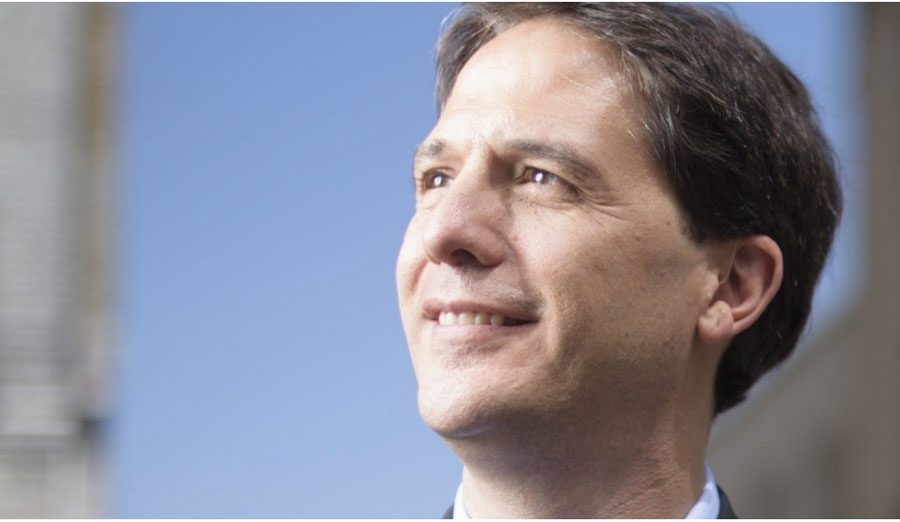
As an immigration lawyer, Hohenstein has worked with immigrants who were the victims of domestic violence. He also served on the Frankford Friends School board for 10 years.
Hohenstein is the Democrat in the race for the 177th PA Congressional District, which has been controlled by Rep. John Taylor (R) since 1985. Being a Democrat is not an advantage in this district. The enclave of Republican voters is what has sustained Taylor’s tenure as State Representative, but Hohenstein believes his message of change will convince voters that it’s time for someone new to hold this office.
Spirit News recently spoke with Hohenstein about his upcoming race against Rep. John Taylor. Here’s what he had to say:
What do you believe is the biggest issue facing Bridesburg and Port Richmond?
“It’s a combination of appropriate education for all the kids and neighborhood security that has to come from the fact that there has been a loss over the past few years of some of those cohesive institutional anchors that some of those elementary schools represented. In particular, some of the Catholic elementary schools that closed are real examples of that and they’re closing because charter schools are opening up.”
“My concern with charter schools is that they’re not always connected to the neighborhood in the same way. They’re not places that kids can just walk and go to. If we’re talking about safe and secure neighborhoods, if it starts with a school, it’s got to start with a school that a kid can just get to easily, instead of being bussed in.”
“It’s also a security issue for the neighborhood in the sense that if the neighborhood is less cohesive, they don’t feel as safe in their neighborhoods. Good schools create good neighborhoods.”
Do you believe this is also a key element in solving the problem of gun violence in Philadelphia?
“I definitely do. It’s the key element to solving a lot of the other social and criminal problems. You educate kids in a way that is not only academically strong, but also connects them to the real world. It’s about teaching kids how to learn and then how to be good citizens.”
“If they do both those things, then they continue to develop stronger tools and continue to be highly contributing members in society. It’s not going to completely erase these issues and problems, but it will certainly have an effect on the number of kids that are drawn to violence and illegal ways to make money. If they have the tools to get jobs, they’re going to go there.”
Large portions of the 177th district are post-industrial. How do you plan on bringing back more industrial and entry-level jobs for people that aren’t college educated?
“Part of it is having an education system that values being able to work with your head and your hands at the same time. There’s a lot of different places and spaces that aren’t as developed as they could be for lower-level or lower-scale manufacturing, so I think investing in small or medium-sized companies is going to pay off. Those will tend to be ones that will be formed by people from within the neighborhood.”
“We will eventually need to attract one or two larger anchor type employers. That’s going to be a challenge. I do know that making the efforts to get two anchoring, manufacturing in particular, employers into the district would be a goal of mine.”
Do you believe there’s gerrymandering going on in the 177th district?
“I’m going to respectfully not comment on that. I’ll let the shape of the district speak for itself. I will note that these neighborhoods that I’ve known since I was a kid. There’s a common characteristic that will come from almost any Philadelphia neighborhood, so cutting lines in a particular way I don’t think it’s necessarily anything to make a big deal about. If I get in, I’m going to represent everybody in the district the same.”
What do you think separates you the most from Rep. Taylor?
“I just want to be someone that brings a fresh perspective into a system in Harrisburg that I just don’t see working. John Taylor, for all his good intentions, is really more Harrisburg than he’s ever been and an example of what’s jamming up the system.”
“The fact that I have fresh perspectives and that I’m willing to push to change things rather than keep them the same. For better or worse, his intentions are good. His perspectives tend to say he wants to keep a status quo. For me, I recognize that the status quo doesn’t work for most people, especially in this district, especially on economy, taxation and education. On the issue of who’s paying their fair share of taxes, that has to change and John wants to keep the status quo on that. [It’s] too favorable to big corporations.”
Why do you think Rep. Taylor has kept his seat for so long?
“He is a nice man and an honorable man as far as I’ve been able to see in all his public dealings. He does have a reputation for serving people in the district, but that’s not something he alone can do. The honest truth is to people in our neighborhoods, it matters that you are from the neighborhood. That’s one thing that I am able to present. When people want to have a State Rep that they can just go into the office and get help, they’re going to get that with me. I know a lot of the problems they’ve faced over the course of their lives and I’ve faced a lot of the same ones.”
Do you feel like not having Rep. Taylor as the Chairman of the Transportation Board will have a negative effect on the region?
“No. Nothing has come into us with respect to transportation that wouldn’t have come to us as a matter of common sense. When we talk about making sure Philadelphia has a decent and adequate working transportation system, that’s something that benefits everyone in the entire state because so much of the goods and commerce flows through here that the rest of the state needs Philadelphia to have an adequate system.”
“The second thing is, I don’t know if the state transportation system is in that great of shape. I don’t know if we’ve gained too much from him being the transportation chair because, to the degree, it’s been something where we’ve gotten services or contracts in Philadelphia that would have happened anyway because the rest of the state needs Philadelphia’s roads to be functional anyway.”
The 177th has an enclave of Republican voters that makes up a significant portion of Republicans in Philadelphia. How do you get them to vote Democrat?
“The thing to recognize is [that] at a local level, there’s not too much difference between Republican and democrat. The two things that I think are concerns to people are do they feel safe in their homes and in their neighborhood, and I think that crosses party lines, and do they want the best for their kids, and that usually means do they want the best school for their kids.”
“The biggest partisan difference is corporations, in particular corporations with oil and natural gas resources, which aren’t going to leave the state. Those corporations need to pay a higher and more fair share of the load. The fossil fuel industry pays one of the lowest rates of taxes in PA [compared to the rest of the country]. It’s a difference that I think working class Republicans can at least respect.”
Do you support reevaluating the changes to the property tax assessment in order to lower property taxes in the 177th district?
“I think the two areas to look at are relief and finding ways to make it function. I am concerned, especially in residential areas, with the use of tax abatements. Especially the concept that they are transferrable. When a 10-year abatement gets attached to a property without requiring the initial property owner to own it for the full 10 years, you’re not talking about someone making an investment in a neighborhood, you’re talking about someone making a financial investment and taking advantage of the tax abatement.” •

